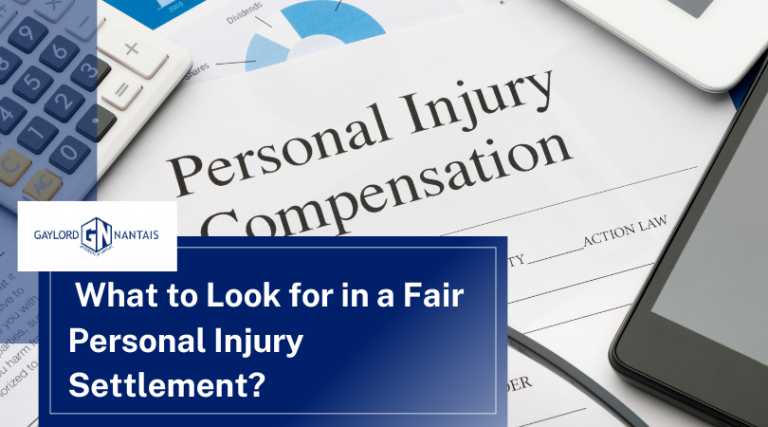A proper personal injury compensation should include medical fees, lost wages, pain and suffering, and other needs you may require to heal. Getting a fair bargain requires knowing how the process works, how much your case is worth, and how reasonable an offer is. You can ensure your personal injury lawsuit settlements aid your physical and financial healing by looking for certain factors. In this article, we will delve into the tips to determine whether the personal injury settlement is fair or not.
How You Will Determine If Your Personal Injury Settlement is Fair or Not?
A personal injury settlement can help pay medical bills, lost earnings, and other losses. Here are the procedures to determine if a personal injury settlement is fair and sufficient.
- Understand your settlement: Know what your deal should include to determine fairness. Costs cover short- and long-term medical care. Mental health care, surgery, hospitalization, medication, physical therapy, and more are available. If the accident prevented you from working, you should receive compensation. Non-economic damages for mental and bodily injury pain. Personal Injury Settlement should repair or replace ownership items like autos. Long-term personal injury settlements should estimate medical care, lost wages, and medical bills.
- Assess damage: Before settling, calculate your economic and non-economic losses. Economics are easier to understand when medical bills and lost salary are involved. These costs can be shown on bills, paystubs, and receipts. Serious injuries with long-term pain may require a higher multiplier. Calculate your economic and non-economic losses to value the offer.
- Find Similar Cases: Compare local verdicts and personal injury lawsuit settlements for similar injuries. Even though every instance is different, knowing the average amount may be beneficial. State courts and qualified personal injury litigation lawyers offer public papers. Consider the type and degree of the damage, the plaintiff’s impact, and local medical costs.
- Balance short- and long-term demands: You should get a fair price for your current and future needs. Especially if your injury permanently alters your health, income, or life. Most personal injury settlements are final, limiting your injury compensation alternatives. The personal injury lawsuit settlements should include medical fees and lost wages if your injuries are serious or permanent. Ask a financial advisor or lawyer how the deal will affect your money and if it’s a wise choice.
- Trial vs. settlement pros/cons: Though cheap, the settlement offer may be worth considering. Long, stressful, and expensive trials can result in losing or getting less than the settlement arrangement. Settlement is faster and guarantees payment. Personal injury settlements may result in lower remuneration and no future claims. Compensation can be higher, especially for non-monetary losses. Months or years can pass in trials. You may not win or get more than a settlement. Attorney and court fees are greater.
- Consult an experienced personal injury attorney: Professional personal injury lawyers can assess the fairness of your settlement offer. Similar-experienced lawyers can negotiate a reasonable settlement. Your lawyer may negotiate. A lawyer may help you negotiate a fair bargain and prevent you from accepting a substandard offer due to pressure or lack of knowledge.
- Negotiate if necessary: You should discuss if the settlement offer is too low or doesn’t satisfy you. Insurance companies want personal injury claims to accept and not argue when they offer less. Start with the bare minimum, then counteroffer to obtain more. If talks fail, your lawyer can employ mediation or arbitration, which are faster and cheaper than court. You must understand the contract. Settlements can govern privacy, future claims, and more. Before signing, read or have a lawyer read it.
Wrapping Up
You can determine if your personal injury payment is reasonable by calculating your tangible and intangible damages, comparing your personal injury case to others, reviewing the facts, and considering your current and future needs. An experienced lawyer can help you get better terms and money back. Think about the agreement to make a good long-term choice.
At Gaylord & Nantais Attorneys at Law, we represent the best lawyers who have handled a wide range of personal injury accident cases. Contact us today at (562) 424-9967 to schedule a free consultation with our lawyers.











